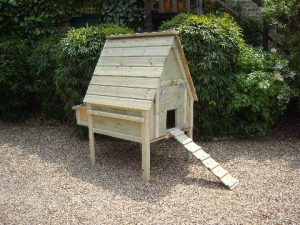Keeping chickens is a fantastic pastime, one that people have flocked to in recent years, and chickens could make a fantastic addition to your garden and your family.
Here are the most common questions people that are new to chicken keeping ask:
#1 – Do I need permission to keep chickens?
If you live in the UK then you shouldn’t need permission to keep chickens. However, some old houses have bans on keeping chickens so it’s important to check the deeds to your house first.
You might also want to phone your local Environmental Health Officer just to cover all bases. And of course, asking your neighbours if they mind is the polite thing to do!
#2 – What do chickens eat?
Chickens are omnivorous which means that they’ll eat pretty much anything! The majority of your hens’ diet should be made up from a commercial pellet or layers mash which you can buy at your local feed merchants and some pet shops.
You’ll also find your hens look for their own food including grass, worms, and bugs.

#3 – How much do chickens eat?
The exact answer to this question depends entirely on the number of birds you keep and their age, sex, and breed but here’s a rough guide:
- Laying hens = 4/6 ounces of food per day
- Bantams = 2/3 ounces of food per day
Larger breeds, such as the Buff Orpington or Jersey Giant, need more feed and all chickens will need an increased food intake during the colder winter months. Chicken keepers usually make sure food is available at all times so that hens can help themselves throughout the day.
#4 – How do I put my chickens to bed?
Chickens usually put themselves to bed at dusk, although this doesn’t always mean they’ll go to bed in their hen house!
For the first few weeks you may need to herd them in at “bedtime” or lay a trail of food to the chicken house door for them to follow. Chickens are creatures of habit and it shouldn’t take them long to get into a routine.
If you keep your chickens in a run then you could also try not letting them free range for a couple of weeks. After this point they should know where “home” is and put themselves to bed without you needing to get involved.

#5 – How long do chickens live?
This varies from breed to breed and of course depends on whether your chicken is injured or becomes ill. Generally a healthy bird will live for between eight to 15 years, although chickens have been known to live for as long as 20 years.
#6 – How many eggs will my chickens lay?
Again, this depends entirely on the breed and age of your chickens. Commercial hybrids, such as the Warren, could lay 320 in a year. Pure bred or rare breeds tend to lay fewer eggs.
You’ll also find that hens lay fewer eggs as they get older but most breeds are fairly productive layers during their first laying year.

#7 – Do I need a cockerel to get eggs?
No, and your neighbours would probably appreciate it if you didn’t! You’ll only need a cockerel if you want to start breeding your chickens and need fertilised eggs.
#8 – What do I do if one of my chickens is ill?
Because chickens are prey animals they don’t usually start to look ill until it is quite serious. This means that if one of your flock does become ill you’ll need to act quite quickly.
Remove the ill bird from the flock, place it in a warm, quiet place with food and water, and watch for any changes. If your hen doesn’t improve then consult a chicken friendly vet – finding one can be a challenge, so it’s worth sourcing a good vet before you purchase your chickens.
#9 – What do I do with my hens if I go on holiday?
The easiest option is to make friends with another chicken keeper and take it in turns to look after each other’s flocks when you go away. Another option that is gaining popularity is to send your chickens on a “hen holiday” where they’ll be cared for until you return.
A quick internet search should turn up a company that is local to you.

#10 – How big does my chicken house need to be?
This is another question that entirely depends on the number of birds you have and their breed. As a general rule your run or enclosure should provide 2/3 square feet per bird. If your birds aren’t going to free range then you should look at an enclosure that gives them 10 square feet per bird.


